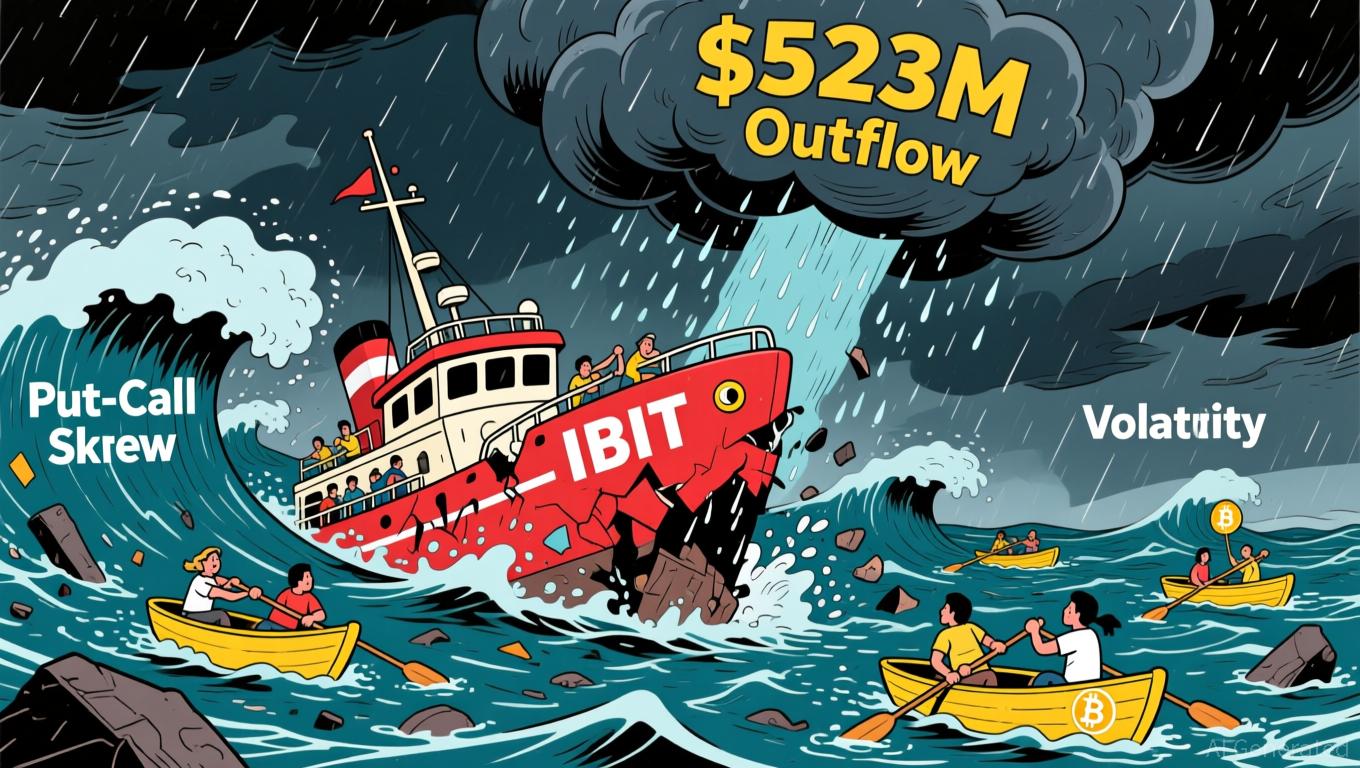Strategy Continues Bitcoin Buying Despite Six Month Stock Low
Michael Saylor's Strategy Inc. purchased 196 Bitcoin for $22.1 million during the week ending September 29, 2025. According to Cointelegraph, the transaction occurred as Bitcoin dropped below $110,000. The company paid an average price of $113,048 per coin.
The acquisition brought Strategy's total holdings to 640,031 Bitcoin. The company purchased these holdings for approximately $47.35 billion at an average cost of $73,983 per coin. Strategy disclosed the purchase through a US Securities and Exchange Commission filing on Monday.
This purchase represents one of Strategy's smallest weekly Bitcoin acquisitions to date. The $22 million transaction continues a pattern of declining purchase sizes over recent months. Bitcoin started the week above $112,000 before falling to $109,800 on Thursday.
Declining Purchase Volumes Reflect Market Pressure
Strategy's modest purchase size reflects broader changes in corporate Bitcoin buying patterns. Cryptonews reports that corporate treasuries now hold over 1 million Bitcoin collectively. However, Strategy's monthly purchases dropped from 134,000 Bitcoin in November 2024 to just 3,700 Bitcoin in August 2025.
The company's stock price also declined during this period. MSTR shares fell to $300.7 on Wednesday, reaching a six-month low. This represents the lowest price level since mid-April 2025. The stock lost 2.9% of its value over the past six months, though it remains up 96% over the past year.
Strategy's reduced buying activity comes as the company manages dividend obligations on its preferred shares. The company raised $128 million during the week but purchased only $22 million in Bitcoin. This approach suggests Strategy is balancing Bitcoin accumulation with other financial commitments.
Corporate Treasury Model Faces Market Tests
Strategy's buying slowdown occurs during a period of transformation for corporate Bitcoin strategies. The company pioneered the corporate Bitcoin treasury model starting in August 2020. Today, over 278 public entities hold Bitcoin on their balance sheets, with total corporate holdings exceeding 1.3 million Bitcoin in 2025.
The current market environment tests whether corporate Bitcoin strategies can maintain momentum during price volatility. Strategy still holds more than half of all Bitcoin held by public companies. The company's average cost basis of $73,983 per coin remains well below current market prices, providing a substantial unrealized profit margin.
Government interest in Bitcoin reserves adds another dimension to the corporate treasury discussion. We reported that 15 US states are moving forward with plans for Bitcoin reserves, with Pennsylvania, Oklahoma, and New Hampshire proposing allocations up to 10% of public funds for Bitcoin purchases. This government activity suggests Bitcoin's role as a reserve asset extends beyond corporate adoption.
Strategy co-founder Michael Saylor maintains his outlook for Bitcoin price appreciation. He predicted Bitcoin would rise toward the end of 2025 after working through current market headwinds. The company's continued purchases, even at reduced volumes, demonstrate commitment to its Bitcoin accumulation strategy despite near-term stock price pressure.
The coming months will determine whether Strategy's approach becomes the standard for corporate Bitcoin holdings or whether market conditions force strategy adjustments. Other companies attempting similar models face challenges maintaining stock premiums relative to their Bitcoin holdings. Strategy's execution and capital discipline set it apart from newer entrants in the corporate Bitcoin treasury space.
Disclaimer: The content of this article solely reflects the author's opinion and does not represent the platform in any capacity. This article is not intended to serve as a reference for making investment decisions.
You may also like
Bitcoin News Update: Japan's Bond Turmoil Triggers Worldwide Crypto Sell-Off Amid Yen Carry Trade Reversal
- Japan's $135.4B stimulus package triggered a 3.41% surge in 30-year bond yields, destabilizing the $20T yen carry trade and sparking global crypto/stock selloffs. - Rising yields threaten Japan's 230% GDP debt load with higher servicing costs, creating a "debt death spiral" risk as BOJ hesitates to tighten policy. - Forced deleveraging by financial institutions intensified Bitcoin's 26% drop, with Ethereum/XRP/Solana also falling 3-5.6% amid margin calls and capital repatriation. - Upcoming 40-year bond

Bitcoin News Today: Bitcoin ETFs See $523M Outflow as Investors Weigh Fear Against Long-Term Strategies
- BlackRock's IBIT ETF recorded a $1.26B net outflow in Nov 2025, its largest redemption since 2024 launch. - Bitcoin price fell 16% to $52, triggering $2.59B outflows across 11 spot ETFs as bearish options demand surged. - Put-call skew hit 3.1% (7-month high), reflecting heightened pessimism and capitulation pressures in Bitcoin's price action. - Gold ETFs gained $289M as investors sought safe havens, contrasting with $1B inflows to tech/healthcare sector funds. - Year-to-date Bitcoin ETF inflows ($27.4B

YFI Drops 1.7% After Subpar Weekly Results as Edgewater Showcases AI-Powered Wi-Fi at Canada’s Leading Semiconductor Conference
- Edgewater Wireless will showcase AI-powered Wi-Fi 8 solutions at Canada’s premier semiconductor symposium in November 2025. - The company’s CEO will highlight ultra-reliable wireless roadmaps and a $2.4M commercialization initiative supported by $921K in government grants. - Its patented Spectrum Slicing technology claims 10x performance gains and 50% latency reduction, aligning with Canada’s semiconductor self-sufficiency goals. - Despite a 11.85% monthly stock decline, Edgewater positions itself at the

Ethereum Updates Today: Ethereum Transforms into Digital Bonds, Soaring Above $3,000 Driven by Institutional Interest
- Ethereum surged past $3,000 in late 2025 driven by institutional demand, ETF approvals, and technical upgrades like the Fusaka upgrade. - BlackRock's staked Ethereum ETF attracted $13.1B inflows since 2024, reclassifying staked ETH as "digital bonds" for institutional investors. - Over 69 corporations now hold 4.1M ETH in treasuries, but ETF outflows highlight ongoing market differentiation from Bitcoin . - Fusaka's focus on layer-1 scalability aims to redirect economic activity to Ethereum's base layer